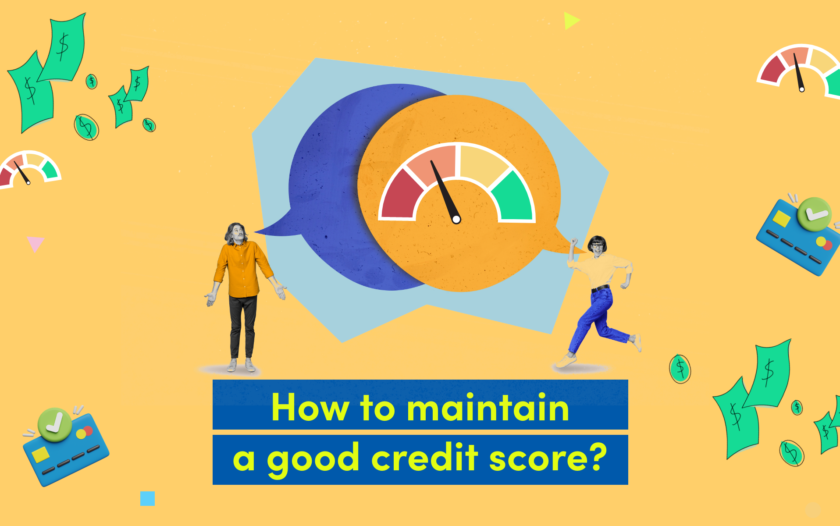Maintaining Good Credit – What You Should Do?
About Harrison
Harrison Pierce is a writer and a digital nomad, specializing in personal finance with a focus on credit cards. He is a graduate of the University of North Carolina at Chapel Hill with a major in sociology and is currently traveling the world.
Read full bio
At a Glance
Having good credit is essential for financial stability and achieving your financial goals. It allows you to qualify for loans, mortgages, and credit cards with favorable terms. To maintain a good credit score, there are specific actions you should take. Let’s discuss 12 strategies to help you maintain good credit and answer some frequently asked questions about credit scores.
The proportion of Americans with a credit score in the excellent range – between 800 and 850. 23.3%


1. Pay your bills on time always
Paying your bills on time is crucial for maintaining good credit. Late or missed payments can have a significant negative impact on your credit score. Set up reminders or automatic payments to ensure you never miss a payment deadline.
2. Make at least the minimum payments
While paying your bills on time is important, making at least the minimum payments on your credit accounts is equally important. Failing to do so can result in late fees and negatively affect your credit score.
3. Consider credit monitoring services
Credit monitoring services can help you closely monitor your credit score and receive alerts about any significant changes or potential identity theft—research different providers to find a service that suits your needs and budget.
4. Treat all your debts equally
It’s important to treat all your debts equally and prioritize paying them off. Whether it’s credit card debt, student loans, or a mortgage, make consistent efforts to pay off your debts in a timely manner.
5. Keep old credit cards open
Closing old credit card accounts can lower the average age of your credit history, which can impact your credit score. Even if you don’t use them frequently, keeping your old credit cards open is generally beneficial, especially if they have a positive payment history.
6. Consolidate cards to have fewer balances
If you have multiple credit card balances, consider consolidating them into a single account or transferring them to a card with a lower interest rate. This can simplify your finances and make it easier to manage your payments.
7. Try maintaining low credit utilization
Credit utilization refers to the percentage of your available credit that you’re currently using. Keeping your credit utilization low (typically below 30%) can positively impact your credit score. Pay off balances regularly and avoid maxing out your credit cards.
8. Monitor your credit reports regularly
Regularly monitoring your credit reports allows you to stay aware of any errors, inaccuracies, or fraudulent activities that could harm your credit. You can request free copies of your credit reports from the major credit bureaus annually.
9. Avoid applying for new credit unnecessarily
Each time you apply for new credit, it generates a hard inquiry on your credit report, which can temporarily lower your credit score. Only apply for new credit when necessary; be selective about the accounts you open.
10. Contact creditors if you face problems
If you’re facing financial difficulties that make it challenging to meet your payment obligations, it’s essential to contact your creditors. They may be willing to work with you to establish a payment plan or modify the terms of your agreement to help you through a difficult time.
11. Do not exceed your credit limit
Maxing out your credit cards or consistently carrying high balances can negatively impact your credit score. Aim to keep your credit card balances below their limits to demonstrate responsible credit management.
FAQs
A good credit score typically falls within the range of 670 to 850, although the specific range may vary depending on the credit scoring model used. Learn more: What is a Good Credit Score? You can check your credit score through various credit monitoring services including credit bureaus, financial institutions and Credello’s new Credit Score Monitoring feature. The new feature is designed to help you stay on top of your credit score by providing daily updates & real-time alerts. And unlike other credit monitoring tools out there it gives you tailored recommendations and tools designed to build better credit habits. Some services provide free credit score access, while others may require a subscription or fee. Several factors can lower your credit score, including late payments, high credit card balances, applying for new credit frequently, maxing out credit cards, and having accounts in collections or going through bankruptcy. Learn more: What Lowers Your Credit Score? While paying your bills on time is essential, other factors can influence your credit score. These include your credit utilization, length of credit history, types of credit, and recent credit inquiries. Review your credit reports and seek guidance from a financial advisor to understand the reasons behind the decrease.









